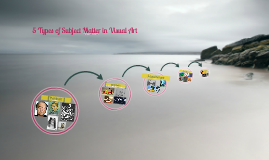Energy Industrial Training Institute is an approved Highfield International Training Centre. Highfield Qualifications is a global leader in compliance and work-based learning and apprenticeship qualifications and one of the UK’s most recognisable awarding organisations. This chapter interrogates debates about Subject Matter knowledge (SMK) in teacher education. It begins by providing a brief description of the search methods used before examining the origins of.
- Subject Matter Knowledge Ms. Schrader's Teaching Portfolio Lesson
- Subject Matter Knowledge Ms. Schrader's Teaching Portfolio Example
Our digital world is transforming the way we learn, and today's teachers are tasked with the challenging job of sifting through the deluge of educational technologies and creating a meaningful learning experience for students.

In my 15 years in education, I've seen firsthand how opportunities and a little guidance can positively impact a person's future and change the life path they're following. In fact, as a result of serving on the San Francisco School Board, where I learned about the obstacles to education, I've seen how creating learning opportunities can impact a long-term digital identity.

Next-generation education portfolio platforms -- such as Digication, Pathbrite, Taskstream and Epsilen -- are one way for teachers to start early and educate students about how they can manage their own academic and professional accomplishments. From using portfolios for giving students educational feedback to the portability of transcripts and official academic documents, new opportunities exist for lifelong learning and sharing.
Based on my work with K-12 and higher education institutions, I've seen some amazing results -- teachers reporting huge leaps in student engagement and vastly increased peer-to-peer collaboration -- as a result of using online portfolios in the classroom. Given this, I've developed five best practices for implementing an education portfolio platform in any K-12 or college classroom.
1. Build in Opportunities for Peer-to-Peer Learning
Focus on the goal of increasing students' digital literacy by fostering a collaborative learning environment where some of the more tech-savvy students can guide and help others learn. These practices can generate trust, offer problem-solving opportunities, and deepen peer-to-peer learning on the educational lessons taught in the course.
2. Create Lessons That Foster Data and Knowledge Curation

Sifting through the endless hoards of information on the Internet is becoming a necessary skill. Students need to learn how to find reliable sources and how to conduct research in an organized and discriminating way. Eleventh-grade English teacher Amy McGeorge of Leadership Public Schools, a high school in the San Francisco Bay Area, began using next-generation education portfolios in the classroom to teach the literary classic Catcher in the Rye. She assigned a digital literary analysis and asked students to create an online portfolio that included what they learned about the characters. The results showed better-than-ever student engagement and understanding of the story.
3. Engaging for All Levels of Learners
Subject Matter Knowledge Ms. Schrader's Teaching Portfolio Lesson
One of the biggest challenges for today's large classrooms and high student-to-teacher ratios is offering high-performing students engaging activities that won't hold them back while the teachers focus on students who need additional support. Online portfolio projects are a stimulating activity that allows learners of all levels to deepen their knowledge on a subject matter or assignment while maintaining a common ground with their peers.
4. Develop Organization Skills and Plan for the Future
Instead of sorting through crumpled assignments in the bottoms of backpacks, students are able to login to their online portfolios and find everything in an organized manner. Using tags for common subject areas helps students sort through all of the information they have collected so that they can see the 'bigger picture' and be reminded of all the work they have done in a specific area. I saw one example from a graduate level course at the University of Illinois in the School of Library and Information Science. Here, students were given the assignment of creating an online portfolio that showed digital materials reflecting theoretical concepts on gender, race and sexuality learned in the course. Not only did student understanding of the concepts far surpass the classes that weren't using online portfolios, but students also reported high levels of satisfaction with their ability to share their class portfolios with professional and personal contacts beyond the classroom.
5. Not All Online Portfolios are Created Equal
Subject Matter Knowledge Ms. Schrader's Teaching Portfolio Example
When picking an online portfolio, look for portfolios where the creators remain the owners of the data compiled. It's important that students and users have access to the content of the portfolio beyond the course or college education.
Using online portfolios successfully gives early adopters in the classroom the latitude to teach peers how to master the technology. Learning can be accelerated through the process of independently curating new knowledge and can also be extended beyond the classroom for a long-term collection of academic and professional successes.
